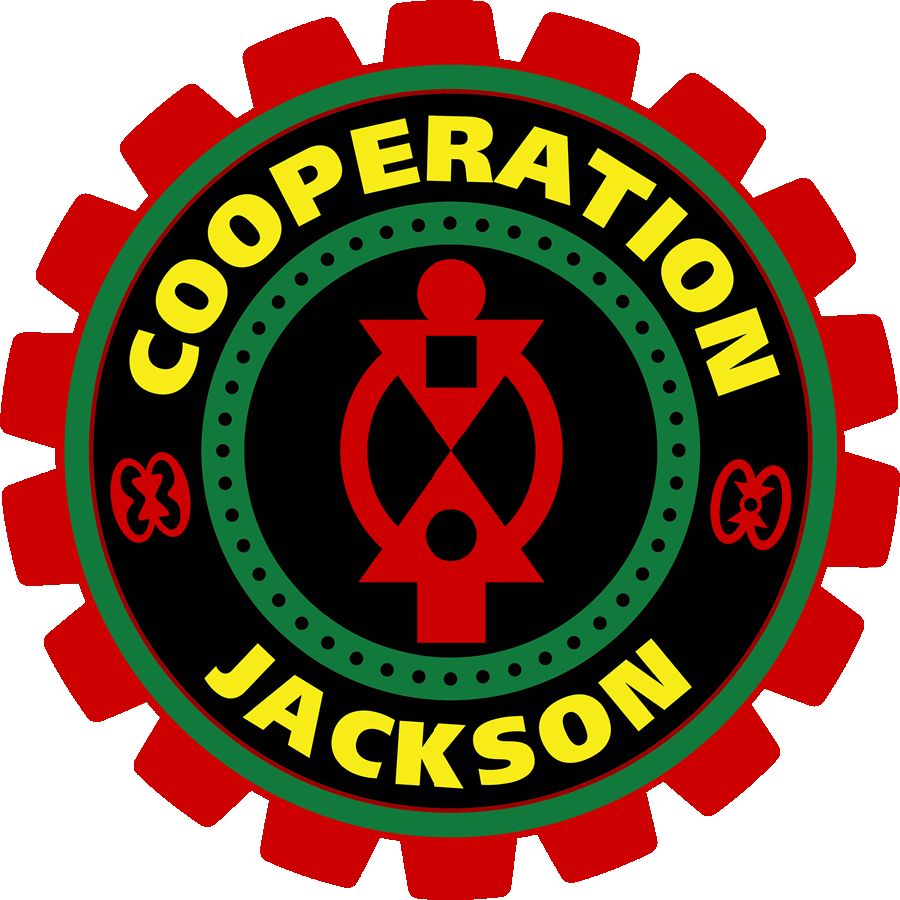Definition & Principles
The Mondragón Corporation, a corporation and federation of worker cooperatives based in the Basque region of Spain, is the largest business group in the Basque Country and the tenth largest in Spain. It was founded in 1956 by a small core group of students at a technical college. As of 2012, it employed 80,321 people in 289 companies and organizations in the fields of finance, industry, retail and knowledge. The Basque people, an oppressed national minority within Spain, now have economic power in their own homeland, because cooperative principles of economics work.
Cooperation Jackson has crafted its own definition, values and principles of cooperatives and democratic organizations by drawing on the definitions, values and principles of Mondragón and the International Cooperative Alliance that address our vision and context.
Definition
A cooperative is an autonomous association of persons united voluntarily to meet their common economic, social, and cultural needs and aspirations through a jointly owned and democratically controlled enterprise.
Values
Co-operatives are based on the values of self-help, self-responsibility, democracy, equality, equity and solidarity. In the tradition of their founders, co-operative members believe in the ethical values of honesty, openness, social responsibility and caring for others.
Principles
The cooperative principles are guidelines by which cooperatives put their values into practice.
Voluntary and Open Membership: Cooperatives are voluntary organizations, open to all who agree with the cooperative principles who are able to use its services and willing to accept the responsibilities of membership, without gender, social, racial, political or religious discrimination.
Democratic Member Control: The cooperative system is based upon the equality of member-workers or cooperators. Aside from limited and special circumstances all workers must be members. The cooperative is democratically controlled on the basis of one member, one vote; its governing structures are democratically controlled and are also responsible to the general assembly or other elected body.
Sovereignty of Labor: Labor is the essential transformative facto of society. The cooperatives renounce wage labor, give full power to the owner-workers to control the co-ops, give primacy to workers in distribution of surpluses, and work to extend the cooperative choice to all members of society.
Autonomy and Independence: Cooperatives are autonomous, self-help organizations controlled by their members. If the co-op enters into agreements with other organizations or raises capital from external sources, it is done so based on terms that ensure democratic control by the members and maintains the cooperative’s autonomy.
Instrumental and Subordinated Character of Capital: Capital is basically accumulated labor and a necessary factor in business development and savings. The co-ops pay a just but limited return on capital saved or invested, a return that is not directly tied to the losses or surpluses of the co-ops. Their need for capital shall not impede the principle of open admission, but co-op members must make a substantial, affordable, and equal financial investment in the cooperative. At present, this membership contribution is equal to a year’s salary of the lowest-paid member.
Members' Economic Participation: Members contribute equally to, and democratically control, the capital of the cooperative. This benefits members based on the proportion of contributed labor or hours worked or the level of business they conduct with the cooperative rather than on the capital invested.
Self-Management: Cooperation involves both collective effort and individual responsibility. Cooperation “is the development of the individual not against others but with others.” Democratic control means participation in management and the ongoing development of the skills needed for self-management. There must be clear information available on the co-op’s operations, systematic training of owner-workers, internal promotion for management positions, and consultations and negotiations with all cooperators in organizational decisions that affect them.
Pay Solidarity: The co-ops will practice both internal and external pay solidarity. Internally, the total pay differential between the lowest and the highest paid member shall not exceed a factor of one to six.
Internal Cooperation – Cooperation within the Federation of Cooperative Jackson: Internal cooperation within Cooperation Jackson exists on three levels: among individual co-ops organized into groups; among co-op groups; and between Cooperation Jackson system and other movements.
External Cooperation - Cooperation among Cooperatives: Co-ops are not isolated entities. Cooperatives serve their members most effectively and strengthen the cooperative movement by working together through local, national, regional and international structures.
Education, Training and Information: Cooperatives provide education and training for members, elected representatives, managers and employees so they can contribute effectively to the development of their cooperative. Members also inform the general public about the nature and benefits of cooperatives.
Social Transformation: Cooperation in the Cooperation Jackson system is an instrument for social transformation. As Jose Maria Arizmendiarrieta, a founder of the Mondragón system wrote “Cooperation is the authentic integration of people in the economic and social process that shapes the new social order; the cooperators must make the objective extend to all those that hunger and thirst for justice in the working world.” The cooperatives of Cooperation Jackson will reinvest the major portion of their surpluses in Jackson and Kush District (the contiguously Afrikan counties of western Mississippi). Following the Mondragón model, a significant portion our surplus will go toward new job development, to community development (through the use of social funds), to a social security system based on mutual solidarity and responsibility, to cooperation with other institutions advancing the cause of workers in Mississippi, and to collaborative efforts to developing a transformative culture in Mississippi.
Universal Nature: Cooperation Jackson proclaims its solidarity with all who labor for economic democracy, peace, justice, human dignity, and development throughout the world, particularly with the peoples of Africa, Asia, the Caribbean, and Latin America.




